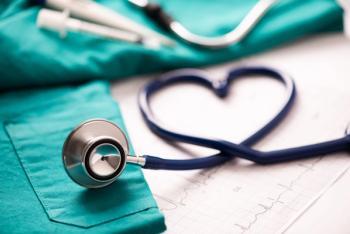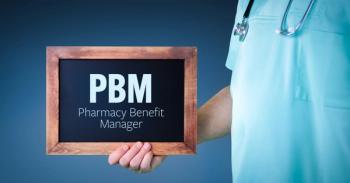
Population Health, Equity & Outcomes
- June 2014
- Volume 2
- Issue 2
Study: Health Recovery Solutions Uses Tablets to Reduce Cardiac Readmissions
Pilot program implemented at Hackensack ACO that provides hospitals and ACOs an early warning system to manage their highest risk patients.
Health Recovery Solutions (HRS) has made great strides in solving the readmission problem, and HRS is gaining national attention for its clinical successes and commitment to significantly improving outcomes for both patients and hospitals.
Health Recovery Solutions was co-founded by Jarrett Bauer at Johns Hopkins University after his grandmother was unnecessarily readmitted to the hospital for heart failure. The lack of attention that contributed to his grandmother’s illness led him to mobilize doctors, nurses, developers, and engineers to develop technology for leading medical centers to reduce readmissions and empower patients to improve their own lives once discharged. “From day 1, we set out to give patients the tools to succeed after they leave the hospital’s care,” said Mr Bauer.
HRS provides leading medical centers with the most advanced patient monitoring devices, focusing on managing their highest-risk patients through changing patient behavior to reduce readmissions. Upon admission, patients are provided a 4G Internet-ready tablet that is preloaded with HRS software. Patients are able to use informational videos and teach-back quizzes to educate themselves on their condition, which includes dietary information and more. At discharge, patients leave with integrated wireless monitoring devices (including blood pressure monitors, pedometers, digital scales, and pulse oximeters) in addition to their tablets. Patients also receive daily reminders to enter important data such as medication compliance, blood pressure, weight, physical activities, and any symptoms they might be experiencing. Patient data are then recorded and transmitted back to care teams.
After the program was implemented, HRS, Hackensack University Medical Center, and Holy Name Hospital launched a multi-disciplinary study to evaluate the impact of an advanced practice, nurse-directed patient education approach to heart failure treatment while integrating an interactive 4G android tablet. The effect on 30- day readmission, as well as patient activation and engagement, were the primary end points of the 50-patient randomized study, and the results were impressive. Patients utilizing a tablet had an 8% readmission rate compared with a 28% readmission rate for patients who did not receive a tablet. The average patient age was 71 years, with an ejection fraction below 40%. The average medication adherence percentage was 84.38%; average adherence to recording weight was 89.82%; and adherence to daily exercise was 77.09%. Additionally, patients who received the tablet lost an average of 5 pounds during the 30-day study period.
HRS Clinical Trial Data
HRS Tablet Group
• 30-day readmission percentage: 8%
• Average ejection fraction: 37.71%
• 25 patients (14 male, 11 female)
Usual Care Group
• 30-day readmission percentage: 28%
• Average ejection fraction: 40.8%
• 25 patients (13 male, 12 female)
Patients were enamored with the HRS platform. One female patient reported that “Medication reminders were a huge help, and the video chat enabled me to ask my nurse small questions that had a big impact.” Similarly, a male patient in his 80s said, “The tablet kept me motivated and organized. I wasn’t readmitted and I owe a big thank you to this program.”
Nancy Elmann, heart failure advanced practice nurse and out- patient ventricular assist device coordinator, praised the program for reducing readmissions and improving patient lifestyles, stating that “It’s the only tool that gives the patient control when managing their chronic illness. It allows them to be the person engaging with the tablet on their own. The results showed that elderly patients could utilize technology for their own well-being.”
Furthermore, Morey J. Menacker, DO, of Hackensack Medical Center, reflected on a patient who in 2012 was hospitalized every 2 months for chronic heart failure, but hadn’t been hospitalized once in 2013 after being placed in the tablet program. “It’s a dramatic change to a patient’s quality of life,” he said. “You can’t put a cost on that. The cost is miniscule compared to the benefit.”
The program has not only helped patients, it has helped accountable care organizations (ACOs) save money and helped hospitals see a return on their investment by reducing medical penalties associated with readmissions. As a result of the study, HRS has enabled both Hackensack and Holy Name to reduce their Medicare penalty by preventing 5 excess readmissions. The average New Jersey hospital is losing approximately $25,000 for these types of readmissions.
HRS has gained national attention from CNN Money, Time Magazine, and Fox Business News as a result of this study. The HRS tablet program directly helped Hackensack Physician Hospital Alliance ACO to receive Level 1 ACO Accreditation. Other top national medical centers have also begun using the HRS platform, including Massachusetts General Hospital, Penn Care at Home, Valley Hospital, Beth Israel Deaconess Medical Center, and First Health of the Carolinas.
HRS feels fortunate to be in a position to help hospitals and ACOs save money. But as HRS CEO Jarrett Bauer explains, “In the end, it’s all about the patient. The most important thing we do is to help patients take care of themselves.” Author Affiliations: Judith Kutzleb, DNP, RN, CCRN, APN-C, vice president, Advanced Practice Professionals, Holy Name Med- ical Center, Teaneck, NJ; Joan Shea, MBA, JD, Law Office of Joan Gilbride Shea, Esq., Midlandpark, NJ.
Address Correspondence to: Associate editorial director Nicole Be- agin: nbeagin@ajmc.com; 609-716-7777 ext. 131.
Articles in this issue
over 11 years ago
A Transitional Care Model for Patients With Acute Coronary Syndromeover 11 years ago
How We Did It: How One Physician-Owned ACO Earned Shared SavingsNewsletter
Stay ahead of policy, cost, and value—subscribe to AJMC for expert insights at the intersection of clinical care and health economics.










